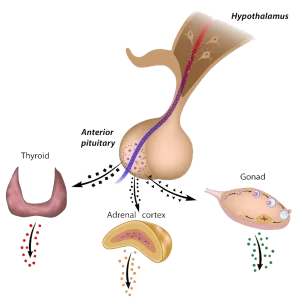Introduction
Ashwagandha, a powerful herb deeply rooted in Ayurvedic medicine, has gained significant attention for its remarkable health benefits. Also known as Withania somnifera, this adaptogenic herb has been used for centuries to promote overall well-being and vitality. From enhancing mental and physical performance to reducing stress and supporting hormone balance, Ashwagandha offers a natural solution for those seeking to optimize their health. In this comprehensive guide, we explore the origins, uses, benefits, and precautions associated with Ashwagandha, empowering you to harness the full potential of this extraordinary herb.
The Origins and History of Ashwagandha
Delve into the origins and rich historical background of Ashwagandha. Explore its Ayurvedic roots and how it has been traditionally used in ancient healing practices. Learn about the different parts of the Ashwagandha plant and how they are utilized to create various formulations.

Ashwagandha (Withania somnifera) has a rich history that spans thousands of years and originates from the Indian subcontinent. It holds a prominent place in traditional Indian medicine known as Ayurveda, where it is considered one of the most valuable and revered herbs.
The use of Ashwagandha can be traced back over 3,000 years to ancient texts such as the Rigveda, an ancient Indian collection of hymns and scriptures. In Ayurveda, Ashwagandha is classified as a rasayana, which means it is believed to promote longevity, vitality, and overall well-being.
The word “Ashwagandha” is derived from Sanskrit, where “Ashwa” means horse and “Gandha” means smell. This name refers to the herb’s distinct odor, which is often described as horse-like. It is also known by other names in different regions, such as “Indian ginseng” or “winter cherry.”

Throughout history, Ashwagandha has been highly regarded for its adaptogenic properties, which help the body cope with stress and promote balance. It was traditionally used to support the body during periods of physical and mental strain, as well as to enhance vitality and strength.
Ashwagandha’s medicinal properties were documented in various Ayurvedic texts, including the Charaka Samhita and Sushruta Samhita, which described its uses in treating a wide range of conditions. It was commonly employed as a rejuvenating tonic, an aphrodisiac, and an immune booster. It was also used to support reproductive health, enhance cognitive function, and promote longevity.
Over time, Ashwagandha’s reputation spread beyond India, and it gained recognition in other traditional medicine systems, including Unani and Siddha. Today, Ashwagandha is widely used and researched in the field of modern herbal medicine and has gained popularity worldwide as a natural supplement for various health benefits.
The discovery and exploration of Ashwagandha’s bioactive compounds, such as withanolides, have contributed to its increasing scientific interest. These compounds have been the subject of numerous studies investigating their pharmacological properties and potential health benefits.
As Ashwagandha’s popularity continues to grow, it is now cultivated in various regions with suitable climates, including India, Nepal, China, and some parts of Africa. The roots and leaves of the plant are typically used in medicinal preparations, and they can be consumed in various forms, including powders, capsules, extracts, and teas.
In summary, Ashwagandha has a long and esteemed history deeply rooted in Ayurvedic medicine. Its traditional uses and reputation as an adaptogen have propelled it into the spotlight of modern herbal medicine. Today, Ashwagandha is recognized globally for its potential health benefits and is valued for its role in supporting overall well-being.
Ashwagandha’s Composition and Nutritional Profile
Discover the active compounds and nutritional components that make Ashwagandha a potent herbal powerhouse. Explore its abundance of antioxidants, flavonoids, and essential nutrients that contribute to its diverse range of health benefits.

Composition of Ashwagandha:
1. Alkaloids: Ashwagandha contains various alkaloids, including somniferine, anahygrine, and tropine. These alkaloids contribute to the herb’s medicinal properties and may have sedative and anxiolytic effects.
2. Withanolides: Withanolides are a group of steroidal lactones found in Ashwagandha. They are considered the primary active compounds responsible for its adaptogenic and health-promoting properties. Some notable withanolides include withaferin A, withanolide A, and withanone.
3. Flavonoids: Ashwagandha contains flavonoids, which are plant compounds known for their antioxidant and anti-inflammatory properties. Flavonoids contribute to Ashwagandha’s overall antioxidant activity and may have additional health benefits.
4. Saponins: Saponins are another group of bioactive compounds present in Ashwagandha. These compounds have been found to have immune-modulating and anti-inflammatory effects, further contributing to the herb’s therapeutic potential.
Nutritional Profile of Ashwagandha:
1. Carbohydrates: Ashwagandha contains a significant amount of carbohydrates, which provide energy and fuel for the body.
2. Proteins: Ashwagandha is a source of proteins, which are essential for the growth, repair, and maintenance of body tissues.
3. Fiber: Ashwagandha also contains dietary fiber, which aids in digestion and supports a healthy digestive system.
4. Essential Minerals: Ashwagandha is a rich source of essential minerals, including iron, calcium, and magnesium. These minerals are necessary for various bodily functions, such as oxygen transport, bone health, and muscle function.
5. Vitamins: While Ashwagandha is not particularly rich in vitamins, it does contain some vitamin C and vitamin E, which are important antioxidants that protect the body against oxidative stress.
Health Benefits of Ashwagandha
Explore the extensive array of health benefits associated with Ashwagandha. From its ability to reduce stress and enhance cognitive function to supporting hormonal balance, fertility, and immune health, delve into the scientific research and traditional wisdom that supports each claim.
Ashwagandha, also known as Withania somnifera, is an ancient medicinal herb that has been highly regarded in Ayurvedic medicine for centuries. This powerful herb offers a wide range of health benefits, making it increasingly popular in modern wellness practices. Let’s delve into some of the notable health benefits associated with Ashwagandha:

1. Stress Reduction and Adaptogenic Properties: Ashwagandha is classified as an adaptogen, which means it helps the body adapt to various stressors and promotes a state of balance or homeostasis. It has been traditionally used to combat stress and anxiety by reducing cortisol, the primary stress hormone, in the body. Ashwagandha’s adaptogenic properties may support overall mental well-being and resilience in dealing with stress.
2. Cognitive Function and Memory Enhancement: Studies suggest that Ashwagandha may have positive effects on cognitive function, memory, and focus. Its bioactive compounds, including withanolides, may help protect brain cells from oxidative stress and promote the growth of new neural connections. These effects could potentially enhance cognitive abilities and support brain health.

3. Energy Boost and Vitality: Ashwagandha is known for its rejuvenating properties, providing a natural energy boost and combating fatigue. It is believed to help increase vitality and stamina, making it beneficial for individuals experiencing physical or mental exhaustion.
4. Immune System Support: Ashwagandha exhibits immunomodulatory properties, meaning it helps regulate and support the immune system. It may enhance the body’s natural defense mechanisms, making it more resistant to infections and diseases. By bolstering the immune system, Ashwagandha promotes overall health and well-being.

5. Hormonal Balance and Sexual Health: Ashwagandha has been used traditionally to support reproductive health in both men and women. It may help balance hormones, increase testosterone levels in men, and improve fertility. Additionally, Ashwagandha has been associated with enhanced sexual function, libido, and overall sexual wellness.
6. Anti-Inflammatory and Antioxidant Effects: The bioactive compounds present in Ashwagandha, such as withanolides and flavonoids, possess anti-inflammatory and antioxidant properties. These properties help reduce inflammation in the body, combat oxidative stress, and protect cells from damage caused by free radicals. By doing so, Ashwagandha may contribute to the prevention and management of chronic diseases.
7. Sleep Quality and Relaxation: Ashwagandha is known for its calming effects on the nervous system, which may help improve sleep quality and support relaxation. It may aid in reducing insomnia, promoting restful sleep, and combating sleep-related disorders.
It’s important to note that while Ashwagandha has shown promising results in various studies and traditional practices, individual responses may vary. It’s advisable to consult with a healthcare professional before starting any new herbal supplement, especially if you have underlying health conditions or are taking medication.
Ashwagandha and Stress Management

Dive deeper into how Ashwagandha acts as an adaptogen, supporting the body’s ability to manage stress. Learn about its impact on cortisol levels, the body’s stress hormone, and how it promotes a sense of calmness and relaxation.
Ashwagandha, an adaptogenic herb, has long been associated with stress management and relaxation. Adaptogens are substances that help the body adapt to stressors and maintain balance. When it comes to managing stress, Ashwagandha offers several mechanisms that contribute to its effectiveness:
1. Cortisol Regulation: Ashwagandha has been found to regulate cortisol, a hormone released by the adrenal glands in response to stress. Elevated cortisol levels can lead to various negative effects on the body, including increased anxiety, disrupted sleep patterns, and impaired immune function. Ashwagandha helps normalize cortisol levels, promoting a calmer and more balanced state.
2. Anxiety and Mood Support: Ashwagandha has anxiolytic properties, meaning it can help reduce anxiety symptoms and promote a sense of calm. It interacts with neurotransmitters in the brain, such as gamma-aminobutyric acid (GABA), which is responsible for inhibitory signaling and helps regulate anxiety. By modulating GABA receptors, Ashwagandha may contribute to stress reduction and improved mood.
3. Antioxidant and Anti-inflammatory Effects: Chronic stress can lead to oxidative stress and inflammation in the body, which can further exacerbate the negative impacts of stress on health. Ashwagandha’s potent antioxidant and anti-inflammatory properties help counteract these effects. It scavenges free radicals, reduces oxidative damage to cells, and suppresses inflammatory markers, providing a protective effect against stress-related damage.
4. Neural Protection and Cognitive Function: Ashwagandha has been shown to protect against neuronal damage caused by chronic stress. It promotes the growth of new neural connections and enhances neuroprotective factors in the brain. By supporting brain health, Ashwagandha may improve cognitive function, memory, and focus, which can be negatively affected by chronic stress.
5. Sleep Improvement: Chronic stress can disrupt sleep patterns, leading to insomnia or poor sleep quality. Ashwagandha’s calming properties help promote relaxation and may contribute to better sleep. By reducing stress and anxiety, Ashwagandha supports healthy sleep patterns, allowing for adequate rest and rejuvenation.
It’s important to note that while Ashwagandha has shown promising results in stress management, individual responses may vary. The optimal dosage and duration of use may also differ based on personal circumstances. Consulting with a healthcare professional is recommended, especially if you have specific health concerns or are taking other medications.
Incorporating Ashwagandha into a balanced lifestyle that includes healthy eating, regular exercise, and stress-reducing practices can enhance its effectiveness in managing stress. Remember, managing stress is a holistic approach, and Ashwagandha can be a valuable tool in supporting overall well-being and resilience in the face of stressors.
Ashwagandha for Mental Clarity and Cognitive Function
Discover how Ashwagandha can improve focus, memory, and overall cognitive function. Explore its neuroprotective properties, its impact on neurotransmitters, and the potential benefits for individuals dealing with cognitive decline or mental fatigue.
1. Neuroprotective Properties: Ashwagandha has neuroprotective effects, meaning it helps protect brain cells from damage caused by oxidative stress and inflammation. The herb’s bioactive compounds, including withanolides, exhibit antioxidant and anti-inflammatory properties that can combat free radicals and reduce inflammation in the brain. By shielding neurons from damage, Ashwagandha supports overall brain health and helps maintain cognitive function.

2. Improved Memory and Learning: Ashwagandha has been studied for its potential to enhance memory and learning abilities. Research suggests that it may facilitate the formation of new neural connections in the brain, which are essential for memory formation and information processing. Ashwagandha’s ability to promote neurogenesis (the growth of new neurons) and enhance synaptic plasticity may contribute to improved memory retention and recall.
3. Reduced Stress and Anxiety: Chronic stress and anxiety can have detrimental effects on cognitive function and mental clarity. Ashwagandha is known for its adaptogenic properties, meaning it helps the body better respond to stress and promotes a state of balance. By regulating stress hormones, such as cortisol, Ashwagandha can reduce the impact of stress on cognitive performance and support mental clarity.
4. Enhanced Focus and Attention: Ashwagandha may also aid in improving focus and attention span. Its calming properties help reduce anxiety and promote relaxation, allowing individuals to concentrate more effectively on tasks at hand. By reducing mental distractions, Ashwagandha can enhance focus and optimize cognitive performance.
5. Neurotransmitter Regulation: Ashwagandha has been found to modulate various neurotransmitters in the brain, including gamma-aminobutyric acid (GABA), serotonin, and acetylcholine. GABA is an inhibitory neurotransmitter that helps regulate anxiety, while serotonin plays a role in mood regulation. Acetylcholine is involved in memory and learning processes. By influencing these neurotransmitters, Ashwagandha may help maintain their balance, thereby supporting mental clarity and cognitive function.
6. Anti-aging Effects: As we age, cognitive decline becomes more prevalent. Ashwagandha’s antioxidant and anti-inflammatory properties, along with its ability to protect against neurodegeneration, make it a potential ally in maintaining cognitive function as we grow older. By counteracting age-related oxidative stress and promoting neuronal health, Ashwagandha may contribute to preserving mental clarity and cognitive abilities.
While the research on Ashwagandha for mental clarity and cognitive function is promising, it’s important to note that individual responses may vary. It’s advisable to consult with a healthcare professional before incorporating Ashwagandha into your routine, particularly if you have underlying health conditions or are taking medications.
Ashwagandha holds potential as a natural supplement for supporting mental clarity and cognitive function. Its neuroprotective properties, stress-reducing effects, and neurotransmitter modulation contribute to its ability to enhance memory, focus, and overall cognitive performance. By incorporating Ashwagandha into a balanced lifestyle, individuals may optimize their mental abilities and promote long-term brain health.
Ashwagandha for Energy, Stamina, and Physical Performance

Explore the benefits of Ashwagandha for physical vitality. Learn how it enhances energy levels, improves stamina, and supports muscle strength and recovery. Discover its potential benefits for athletes, fitness enthusiasts, and those seeking to enhance their physical performance.
Ashwagandha, a renowned herb in traditional Ayurvedic medicine, is not only valued for its ability to promote mental well-being but also for its potential to enhance energy, stamina, and physical performance. Whether you’re an athlete looking to improve your athletic performance or simply seeking a natural way to boost your energy levels, Ashwagandha offers several mechanisms that make it a promising herbal supplement. Let’s explore how Ashwagandha can support energy, stamina, and physical performance:
1. Adaptogenic Properties: Ashwagandha is classified as an adaptogen, which means it helps the body adapt to physical and mental stressors. By regulating stress hormone levels, such as cortisol, Ashwagandha promotes a balanced response to stress and may help combat fatigue and burnout. This adaptogenic effect contributes to improved energy levels and stamina, allowing you to perform better physically.
2. Increased ATP Production: Adenosine triphosphate (ATP) is the primary energy molecule in the body. Ashwagandha has been found to enhance ATP production in cells, leading to increased energy levels. By boosting ATP levels, Ashwagandha can provide a natural energy boost and enhance physical performance.
3. Endurance Enhancement: Ashwagandha has been studied for its potential to improve endurance and stamina. Research suggests that it can enhance oxygen-carrying capacity and increase aerobic capacity, allowing individuals to engage in physical activities for longer durations without exhaustion. This can be particularly beneficial for athletes or individuals seeking to improve their exercise performance.
4. Muscular Strength and Recovery: Ashwagandha has shown promising results in promoting muscle strength and recovery. It has been found to support muscle growth by increasing protein synthesis and stimulating the production of anabolic hormones, such as testosterone. Additionally, Ashwagandha’s anti-inflammatory properties aid in reducing exercise-induced muscle damage and promote faster recovery after intense physical activity.
5. Reduction in Exercise-Induced Stress: Intense physical activity can lead to oxidative stress and inflammation in the body. Ashwagandha’s antioxidant and anti-inflammatory properties help counteract these effects, reducing exercise-induced stress on the body. By minimizing oxidative damage and inflammation, Ashwagandha may enhance overall exercise performance and support faster recovery.
6. Hormonal Balance: Ashwagandha has been associated with hormonal balance, particularly in men. It may help regulate testosterone levels, which play a crucial role in muscle strength, energy, and physical performance. By promoting hormonal balance, Ashwagandha may contribute to improved energy, stamina, and athletic capabilities.
It’s important to note that individual responses to Ashwagandha may vary, and it’s recommended to consult with a healthcare professional before starting any new supplement regimen, especially if you have underlying health conditions or are taking medications.
Incorporating Ashwagandha into a well-rounded lifestyle that includes regular exercise, a balanced diet, and proper rest can enhance its potential benefits for energy, stamina, and physical performance. By supporting the body’s adaptability and promoting overall vitality, Ashwagandha can be a valuable natural tool to optimize physical capabilities and achieve peak performance.
Ashwagandha and Hormonal Balance
Delve into the role of Ashwagandha in supporting hormone balance, particularly in men and women. Learn about its potential benefits for regulating testosterone and estrogen levels, supporting fertility, and addressing hormonal imbalances associated with menopause or andropause.

Ashwagandha, an ancient herb with a rich history in Ayurvedic medicine, is known for its potential to support hormonal balance in the body. Hormones play a vital role in regulating various bodily functions, including metabolism, mood, reproductive health, and overall well-being. Let’s explore how Ashwagandha can contribute to hormonal balance:
1. Adaptogenic Effects: Ashwagandha is classified as an adaptogen, which means it helps the body adapt to stressors and maintain balance. Chronic stress can disrupt hormonal balance and lead to various imbalances, including elevated cortisol levels and hormonal dysregulation. By modulating the stress response and reducing cortisol levels, Ashwagandha promotes a more balanced hormonal environment.
2. Thyroid Support: The thyroid gland plays a crucial role in regulating metabolism and hormone production. Ashwagandha has been studied for its potential to support thyroid function and balance thyroid hormones. It may aid in reducing excessive thyroid activity (hyperthyroidism) or supporting optimal thyroid function in cases of hypothyroidism. By promoting thyroid health, Ashwagandha contributes to overall hormonal balance.
3. Testosterone Regulation: Testosterone is a key hormone in both men and women, responsible for various aspects of reproductive health, muscle strength, and energy levels. Ashwagandha has been shown to support healthy testosterone levels, particularly in men. It may help increase testosterone levels in individuals with low levels and regulate testosterone production. This can have positive effects on energy, libido, and overall hormonal balance.
4. Estrogen Modulation: In women, estrogen plays a critical role in reproductive health and hormonal balance. Ashwagandha has been found to modulate estrogen levels and may support hormonal balance in women experiencing hormonal fluctuations, such as during perimenopause or menopause. By promoting estrogen balance, Ashwagandha may alleviate symptoms associated with hormonal changes and promote overall well-being.
5. Cortisol Regulation: Ashwagandha’s ability to regulate cortisol, the primary stress hormone, is closely linked to hormonal balance. Elevated cortisol levels can disrupt the delicate balance of other hormones in the body, leading to various health issues. Ashwagandha helps normalize cortisol levels, reducing the negative impact of stress on hormonal equilibrium and promoting overall hormonal balance.
6. Mood Support: Hormonal imbalances can often manifest as mood swings, irritability, or anxiety. Ashwagandha has anxiolytic properties, meaning it helps reduce anxiety symptoms and promotes a sense of calm. By supporting emotional well-being, Ashwagandha indirectly contributes to hormonal balance by mitigating the negative effects of stress and emotional fluctuations on hormone levels.
Incorporating Ashwagandha into a holistic approach to health, including a balanced diet, regular exercise, and stress management techniques, can further support its potential benefits for hormonal balance. By promoting overall well-being and addressing the underlying causes of hormonal imbalances, Ashwagandha can be a valuable natural tool to optimize hormonal health and promote a sense of balance and vitality.
Ashwagandha and Immune Health
Discover the immune-boosting properties of Ashwagandha and how it can enhance the body’s natural defense mechanisms. Learn about its effects on immune cell activity, inflammation, and overall immune system function.
Ashwagandha, a revered herb in traditional Ayurvedic medicine, has gained recognition for its potential to support immune health. The immune system is a complex network of cells, tissues, and organs that defends the body against pathogens and plays a crucial role in overall well-being. Let’s explore how Ashwagandha can contribute to immune health:
1. Immunomodulatory Effects: Ashwagandha exhibits immunomodulatory properties, meaning it helps regulate and balance immune responses. It stimulates immune cell activity, including natural killer (NK) cells, macrophages, and lymphocytes, which are key players in the immune system’s defense against infections. By enhancing immune cell function, Ashwagandha supports a robust immune response.
2. Antioxidant Activity: Ashwagandha contains potent antioxidants that help combat free radicals and oxidative stress. Free radicals can damage cells and weaken the immune system. Ashwagandha’s antioxidants, such as withanolides and flavonoids, neutralize free radicals and protect immune cells from oxidative damage, thereby supporting immune health.
3. Anti-inflammatory Properties: Chronic inflammation can have a negative impact on immune function. Ashwagandha possesses anti-inflammatory properties that help reduce inflammation in the body. By modulating inflammatory pathways and inhibiting pro-inflammatory cytokines, Ashwagandha promotes a balanced immune response and supports immune system integrity.
4. Stress Reduction: Chronic stress can suppress immune function, making the body more susceptible to infections. Ashwagandha is well-known for its adaptogenic properties, helping the body cope with stress and promoting resilience. By reducing stress hormone levels, particularly cortisol, Ashwagandha supports a healthy stress response, indirectly bolstering immune health.
5. Antimicrobial Effects: Ashwagandha has demonstrated antimicrobial properties against various pathogens, including bacteria, viruses, and fungi. It may help inhibit the growth of harmful microorganisms, supporting the immune system in its defense against infections. These antimicrobial effects contribute to the overall immune-boosting potential of Ashwagandha.
6. Modulation of Immune-related Conditions: Ashwagandha has been studied for its potential benefits in immune-related conditions. Research suggests that it may help modulate immune responses in autoimmune disorders by regulating the activity of immune cells. Additionally, Ashwagandha’s anti-inflammatory effects can aid in managing chronic inflammatory conditions that affect immune function.
It’s important to note that while Ashwagandha shows promise in supporting immune health, individual responses may vary. It’s recommended to consult with a healthcare professional before incorporating Ashwagandha into your routine, especially if you have specific immune-related concerns or are taking other medications.
Incorporating Ashwagandha into a holistic approach to immune health, including a nutritious diet, regular exercise, adequate sleep, and proper hygiene practices, can further optimize its potential benefits. By promoting immune system balance, Ashwagandha can be a valuable natural tool to support overall immune health and enhance the body’s defense against pathogens.
Ashwagandha Precautions and Potential Side Effects
Understand the precautions and potential side effects associated with Ashwagandha. Explore its interactions with medications, allergies, and considerations during pregnancy or breastfeeding. Learn about appropriate dosages and when to seek professional advice.
While Ashwagandha is generally considered safe for most individuals, it’s important to be aware of potential precautions and side effects associated with its use. Here are some key points to consider:
1. Allergic Reactions: Although rare, some individuals may experience allergic reactions to Ashwagandha. If you have known allergies to plants in the Solanaceae family, which includes tomatoes, peppers, and eggplants, it’s advisable to exercise caution when using Ashwagandha and monitor for any signs of an allergic response.
2. Pregnancy and Breastfeeding: It’s recommended that pregnant and breastfeeding women avoid Ashwagandha due to limited research on its safety during these periods. Ashwagandha may have potential effects on hormone levels, and it’s best to consult with a healthcare professional before considering its use during pregnancy or while breastfeeding.
3. Autoimmune Disorders: Ashwagandha may stimulate the immune system, which could potentially worsen symptoms in individuals with autoimmune disorders such as rheumatoid arthritis, lupus, or multiple sclerosis. If you have an autoimmune condition, it’s crucial to consult with a healthcare professional before using Ashwagandha to assess its suitability for your specific situation.
4. Blood Sugar and Blood Pressure: Ashwagandha may lower blood sugar levels and blood pressure. Individuals with diabetes or hypoglycemia should monitor their blood sugar levels closely when using Ashwagandha, as it may enhance the effects of medications used to control blood sugar. Additionally, individuals with low blood pressure or those taking medications for hypertension should use Ashwagandha with caution and under the guidance of a healthcare professional.
5. Medication Interactions: Ashwagandha may interact with certain medications. It’s important to consult with a healthcare professional if you are taking medications for thyroid disorders, anxiety, depression, immunosuppression, or sedatives, as Ashwagandha may interact with these medications and potentially affect their effectiveness or increase the risk of side effects.
6. Gastrointestinal Disturbances: In some cases, Ashwagandha may cause gastrointestinal disturbances such as upset stomach, diarrhea, or nausea. If you experience any of these symptoms, it’s advisable to reduce the dosage or discontinue use and consult with a healthcare professional.
7. Drowsiness and Sedation: Ashwagandha has calming properties and may cause drowsiness or sedation in some individuals, particularly when taken in higher doses or in combination with other sedative medications. It’s important to exercise caution and avoid activities that require alertness, such as driving or operating machinery, if you experience excessive drowsiness after taking Ashwagandha.
It’s worth noting that individual responses to Ashwagandha can vary, and these precautions and side effects are not exhaustive. It’s always recommended to consult with a healthcare professional before starting any new supplement, especially if you have underlying health conditions, are taking medications, or have specific concerns or sensitivities.
By being informed and seeking professional guidance, you can ensure the safe and appropriate use of Ashwagandha and minimize the risk of potential side effects or interactions.
Incorporating Ashwagandha into Our Lifestyle
Discover practical ways to incorporate Ashwagandha into your daily routine. Explore different forms, such as capsules, powders, or tinctures, and learn about appropriate dosage guidelines. Discover how to choose high-quality Ashwagandha products and explore potential combinations with other herbs or supplements to enhance its effects.
Incorporating Ashwagandha into our lifestyle can be a beneficial addition to support overall well-being. Whether you’re seeking to promote mental clarity, manage stress, enhance physical performance, or support immune health, Ashwagandha offers a range of potential benefits. Here are some tips on how to incorporate Ashwagandha into your daily routine:
1. Choosing the Right Form: Ashwagandha is available in various forms, including capsules, powders, and tinctures. Select a form that aligns with your preferences and lifestyle. Capsules are convenient for on-the-go use, while powders can be added to smoothies, teas, or other beverages. Experiment and find the form that works best for you.
2. Start with a Low Dosage: If you’re new to Ashwagandha, it’s recommended to start with a low dosage and gradually increase it as needed. This allows your body to adjust and ensures you can gauge your individual response to the herb. Following the recommended dosage on the product label or consulting with a healthcare professional can help guide you.
3. Time of Consumption: Ashwagandha can be taken at different times of the day depending on your goals. For stress management and relaxation, taking it in the evening or before bedtime can promote a calm state and aid in quality sleep. On the other hand, if you’re looking for an energy boost or cognitive support, taking it in the morning or during the day may be more suitable.
4. Consistency: Like with any herbal supplement, consistency is important when incorporating Ashwagandha into your routine. Regular use over time allows for the cumulative effects to manifest. Consider integrating it into your daily habits, such as having a designated time or reminder to take your Ashwagandha supplement.
5. Combine Balanced Lifestyle: While Ashwagandha offers potential benefits, it’s important to remember that it works best in conjunction with a healthy lifestyle. Prioritize a balanced diet rich in fruits, vegetables, and whole foods. Engage in regular physical activity, practice stress management techniques, get enough sleep, and maintain a supportive social network. These lifestyle factors complement the effects of Ashwagandha and contribute to overall well-being.
6. Personalize Approach: Everyone’s needs and responses to Ashwagandha can differ. Pay attention to how your body and mind react to the herb. Adjust the dosage or timing if needed, and listen to your body’s cues. Consider keeping a journal to track your experience and any changes you observe in your mental, emotional, or physical well-being.
7. Consult with Professional: If you have specific health concerns, are taking medications, or have underlying medical conditions, it’s advisable to consult with a healthcare professional before incorporating Ashwagandha into your routine. They can provide personalized guidance and ensure it aligns with your individual circumstances.
Remember that Ashwagandha is not a magical cure-all, but rather a natural tool that can support your well-being. It’s important to approach it as part of a holistic lifestyle, considering the synergy with other healthy habits. By integrating Ashwagandha into your daily routine mindfully and responsibly, you can harness its potential benefits and optimize your overall health and wellness.
The Future of Ashwagandha Research
Stay up-to-date with the latest scientific advancements and ongoing research related to Ashwagandha. Explore emerging studies and potential future applications of this remarkable herb, paving the way for new discoveries and innovations.
Ashwagandha, with its long history of traditional use and promising scientific evidence, continues to captivate researchers and scientists. As we look to the future, here are some exciting areas of Ashwagandha research that hold promise:
Mechanisms of Action: While Ashwagandha’s health benefits are well-documented, there is still much to learn about the underlying mechanisms of its actions. Researchers are actively exploring how the various bioactive compounds in Ashwagandha, such as withanolides and alkaloids, interact with different systems in the body, including the nervous, immune, and endocrine systems. Understanding these mechanisms can provide insights into its therapeutic potential and help develop targeted interventions.
Mental Health and Cognitive Function: Ashwagandha’s effects on mental health and cognitive function have garnered significant attention. Research is ongoing to elucidate its impact on neurotransmitter regulation, neuroplasticity, and cognitive performance. Studies are exploring its potential in conditions such as anxiety, depression, cognitive decline, and neurodegenerative diseases. Future research may uncover novel applications and therapeutic strategies to support mental well-being.
Anti-Aging and Longevity: Ashwagandha’s adaptogenic and antioxidant properties suggest a potential role in promoting healthy aging and longevity. Scientists are investigating its impact on cellular senescence, oxidative stress, and inflammation, which are underlying factors in aging processes. Future studies may shed light on Ashwagandha’s ability to support healthy aging, extend lifespan, and improve age-related health outcomes.
Sports Performance and Exercise Adaptation: Ashwagandha’s potential benefits for physical performance and exercise adaptation have gained attention in sports science. Research is exploring its effects on energy metabolism, muscle strength, endurance, and recovery. Future studies may delve deeper into the mechanisms behind its impact on athletic performance, optimal dosing protocols, and its potential role in supporting exercise-induced adaptations.
Immune Health and Disease Prevention: Ashwagandha’s immune-modulating and antimicrobial properties make it an intriguing subject for future research on immune health and disease prevention. Scientists are investigating its effects on immune cell function, inflammation, and immune-related disorders. Further studies may explore its potential in autoimmune conditions, cancer prevention, and infectious diseases.
Combination Therapies and Synergistic Effects: Ashwagandha is often used in combination with other herbs or therapeutic agents in traditional Ayurvedic formulations. Future research may explore the synergistic effects and potential interactions of Ashwagandha with other natural compounds or conventional medications. Understanding these interactions can guide the development of combination therapies that maximize therapeutic outcomes.
Standardization and Quality Control: As the popularity of Ashwagandha grows, ensuring product quality and standardization becomes crucial. Researchers are working on establishing standardized methods for extraction, identification of bioactive compounds, and quality control of Ashwagandha products. This will ensure consistent and reliable formulations for future research and clinical applications.
As scientific interest in Ashwagandha continues to expand, more robust clinical trials, mechanistic studies, and meta-analyses are expected to provide a deeper understanding of its potential applications, optimal dosing, and safety profiles. This knowledge will support evidence-based recommendations and help unlock the full therapeutic potential of Ashwagandha for various health conditions.
It’s an exciting time for Ashwagandha research, and with continued exploration, we can anticipate even greater insights into its mechanisms, efficacy, and potential uses in the years to come.
Conclusion
In conclusion, Ashwagandha stands as a versatile and potent herb that offers a wide range of health benefits. From stress reduction and cognitive enhancement to hormonal balance and immune support, Ashwagandha has the potential to positively impact various aspects of your well-being. However, it’s crucial to approach its usage with awareness and caution, considering individual circumstances and consulting with healthcare professionals when necessary.
By harnessing the power of Ashwagandha and incorporating it into your lifestyle in a mindful and informed manner, you can unlock its incredible potential and experience a renewed sense of vitality and well-being.
Disclaimer: The information provided in this article is for educational purposes only and should not be considered as medical advice. Consult with a healthcare professional before starting any new dietary or supplement regimen, especially if you have underlying health conditions or are taking medications.
- The Benefits of Applying Curd On Hair
- How to Cure Lost Voice Overnight? Effective Home Remedies to Cure a Lost Voice Overnight
- How To Cure Lactose Intolerance? Strategies and Lifestyle To Managing Lactose Intolerance
- The Health Benefits of Onion
- 11 Effective Home Remedies for Healing Anal Fissures
- How To Cure Neck Pain Fast At Home Remedies?
- Pumpkin Health Benefits For Women And Men
- How To Eat Chia Seeds | A Guide on How to Eat Chia Seeds for Optimal Nutrition and Flavorful Wellness
- What Is Moringa and its Health Benefits?
- Lion Mane Powder: Lion Mane Powder for Maximum Results, Side Effects















